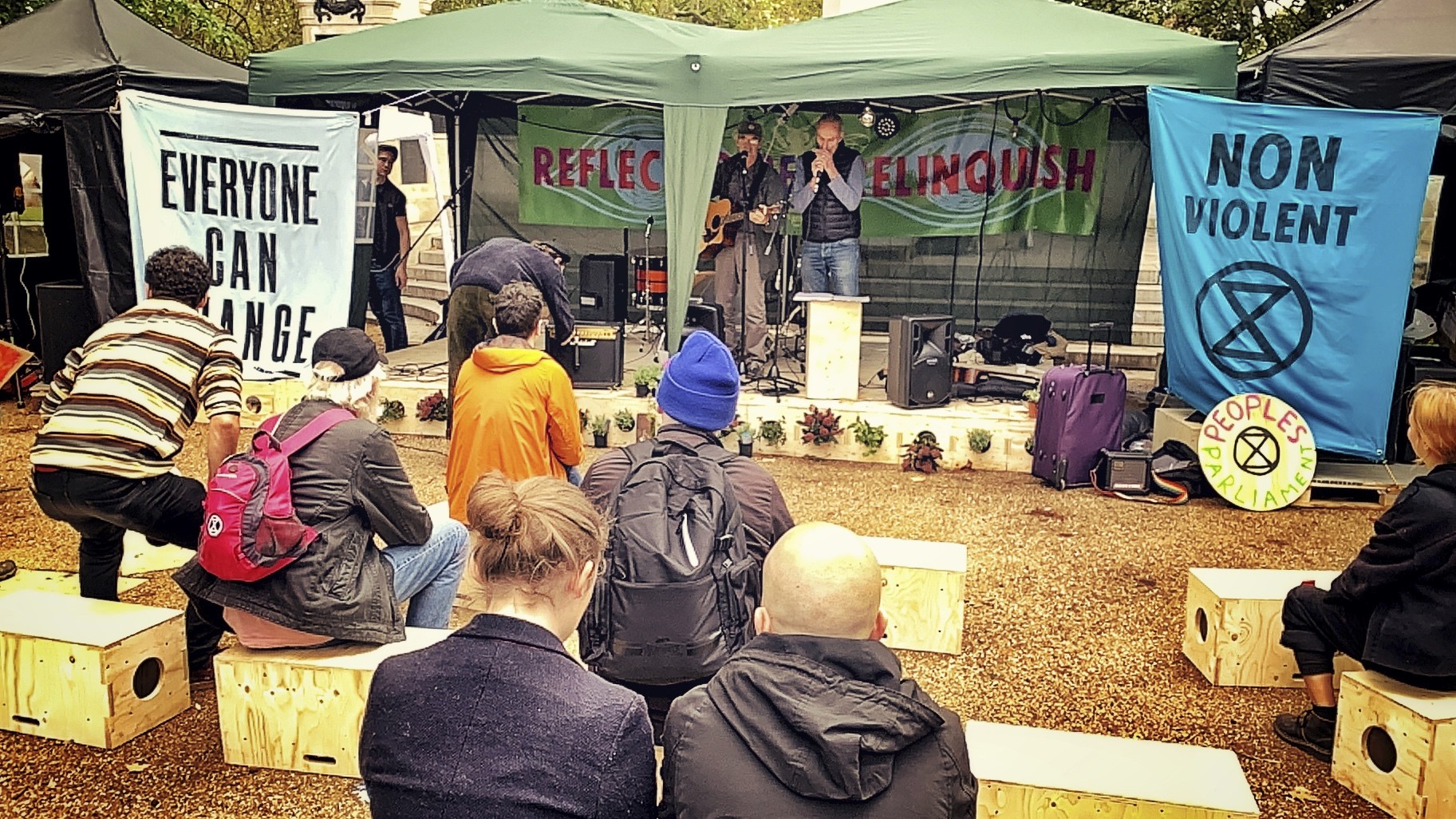Project details
Working closely with the National Life Stories Collection at the British Library, the project will record life story interviews with 100 people involved in environmental protests, policies and practical action since the early 1970s, from direct actions at power stations, through parliamentary work, the Climate Act and UN agreements, to the promotion of city farms, cycle ways and community-owned wind farms. Interviewees will be selected after extensive consultation and will include grassroots activists and social entrepreneurs as well as radical campaigners and pioneers of major environmental groups - forgotten voices as well as leading lights. Some of these activists worked for national and global change, while others focussed on the local level. Some fought to protect their environment from destruction, others created something quite new. All have worked for what they believed in. This is a heritage that matters.
Project outputs
The three-year project will be delivered by a research team combining academic expertise in the study of grassroots movements and oral history with extensive and varied experience in a number of key environmental organisations. Key partners include National Life Stories at the British Library, Friends of the Earth and the Royal Geographical Society (RGS). In addition to creating an entirely new archive, freely available and searchable in both audio and transcript form via the British Library website, we will convene a series of witness seminars and workshops in collaboration with our partners. A freely-downloadable, Open Access book telling the story of environmental activism through the words of campaigners themselves will be produced on the basis of the research. We will also be developing teaching and learning resources for schools with the RGS, based on the real-world experience of environmental activists in order to inspire and inform the active citizens of the future. We will also be involving Masters level students in the Geography department and media partners to make project material widely available in a variety of forms, including podcasts, blogs, profile articles and feature stories.
The interviews will be professionally recorded and transcribed and will contribute to a permanent archive for the environmental movement. The archive will be stored and made available to researchers, environmentalists and the wider public as part of the National Life Stories collection at the British Library. We are committed to recording the widest possible range of voices from a the long and complex history of the environmental movement.
Oral history methodology
The project draws on the great strengths of oral history as a research practice, especially through long-form life stories which enable the experience of activism to be situated in its biographical and social contexts, interrogating the intersectional links between family, region, class, ethnicity, gender and generation. Practically, it is designed to enable the creation of a high-quality national archive of environmental activism, and to make it accessible to as wide an audience as possible in a variety of forms. Ethically, it aims to give contemporary environmental activism a richer collective memory, encouraging cross-generational learning and debate and creating a lasting resource for new thinking and new forms of action to address some of the pressing challenges of our time.
The research undertaken for this project will not only tell new and untold stories about the lives of environmental activists but will also provide a vital tool for researchers to explore new ways of conceptualising environmental activism and combatting the current climate catastrophe.
The historical context
In historical terms, the project focusses on the period since 1970 which has witnessed the development of the modern environmental movement in the wake of events such as the Torrey Canyon oil spill of 1967 and the emergence of global environmentalism in a variety of forms, signified by the iconic Earth Rise image of the earth from Apollo 8 in 1968. During this period, environmental concern was mobilised in a variety of ways including Earth Day 1970 and an unprecedented growth in environmental organisations that have since become household names: Friends of the Earth UK and Greenpeace were both founded in 1971. The proliferation of concerns and campaigns, from anti-nuclear protest to Extinction Rebellion, from urban farms to sustainable transport has been one of the truly striking features of public life in the UK over the last half century.
The research questions
Key research questions we will be asking are:
1. What can personal life stories of activists tell us about historical change and intergenerational exchange within the environmental movement over the last fifty years?
2. What motivates activists, how do these motivations change over the life course and how far do different life experiences of place, education, upbringing, class and ethnicity influence participation in activism?
3. What can oral history contribute to the understanding of the relationships between spontaneous protest, radical activism and organisational change?
4. How have the form and pattern of site-specific environmental activism changed over the last fifty years, with special reference to the urban realm as an arena for climate protest?
5. What new perspectives on the environmental movement can be gained by the creation of a national archive of oral testimony from activists and campaigners?
6. How can an archive of life stories enrich the collective memory of the environmental movement and how can it be used be used to provoke wider discussion within and beyond the environmental sector?
























